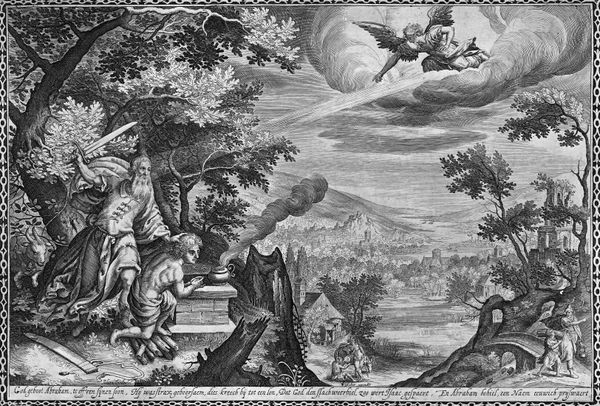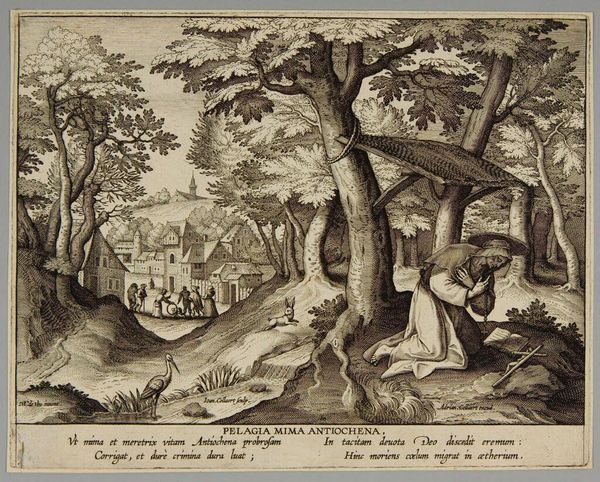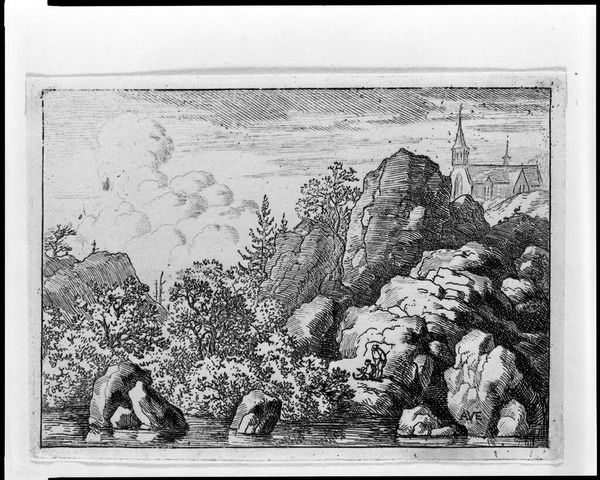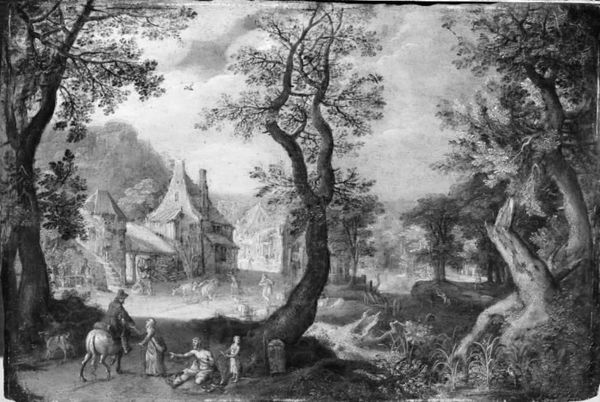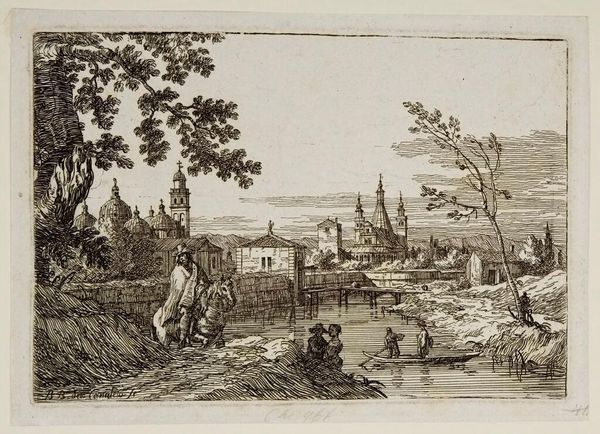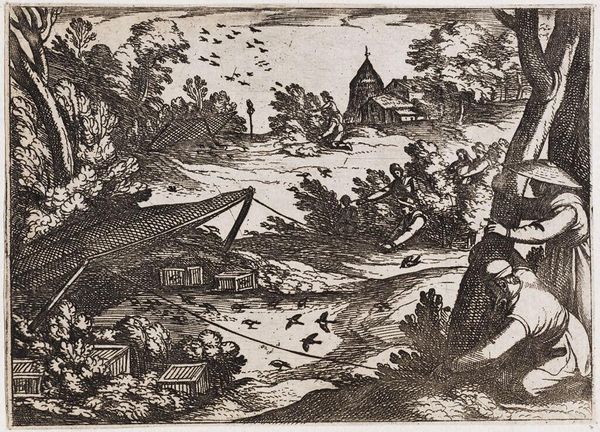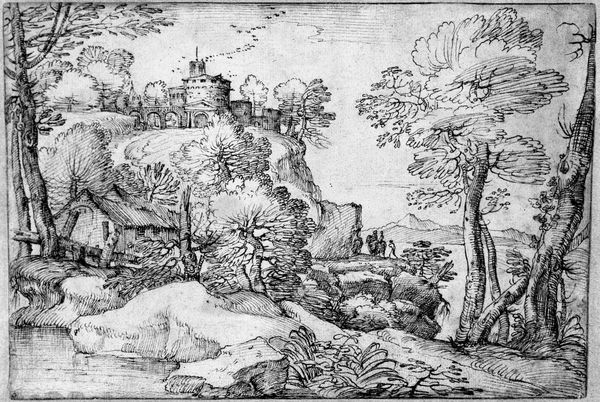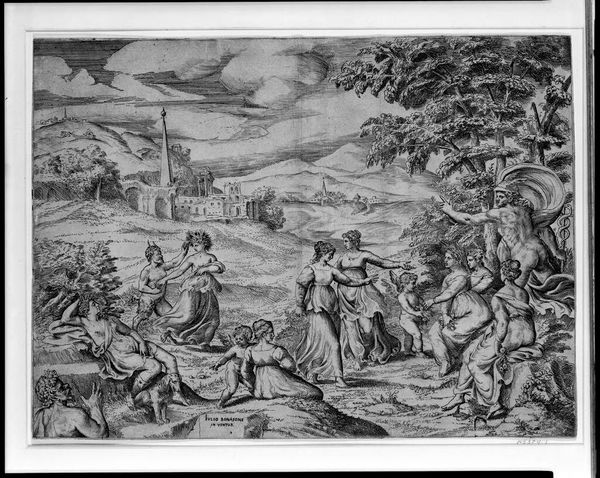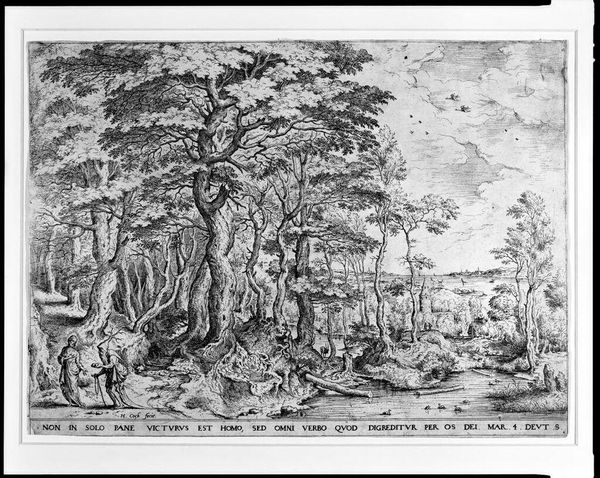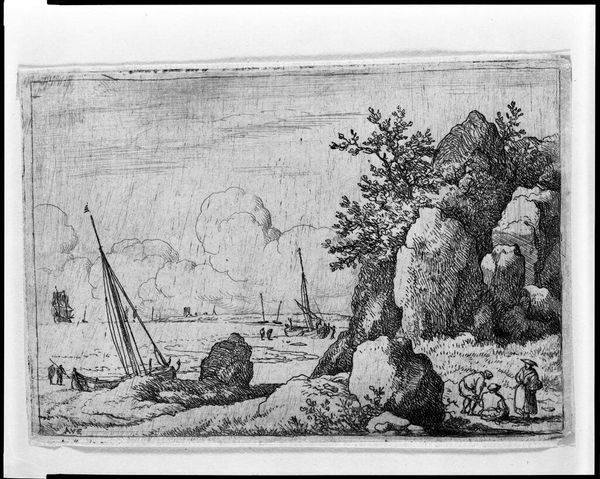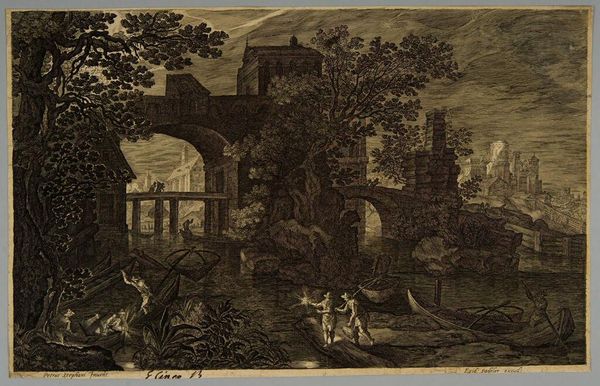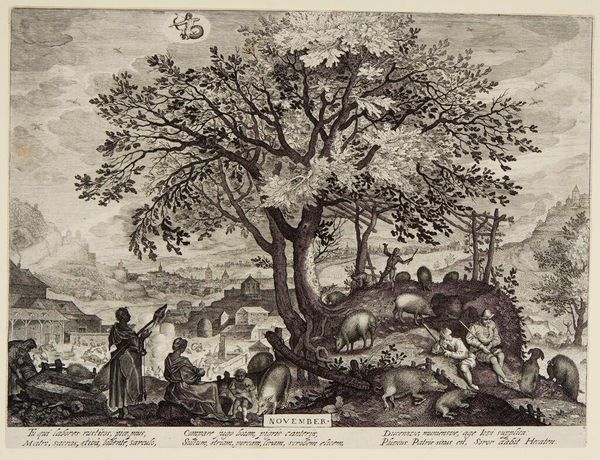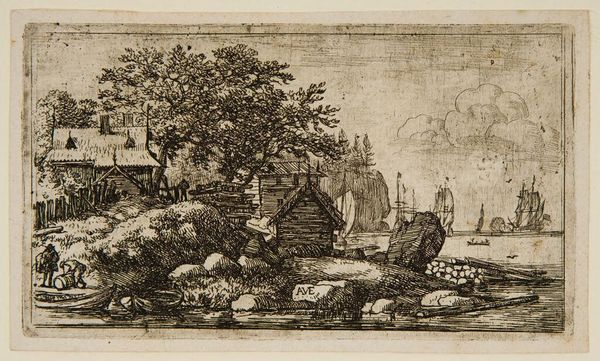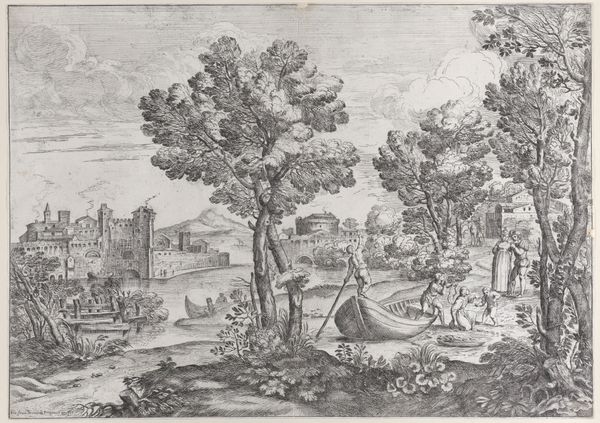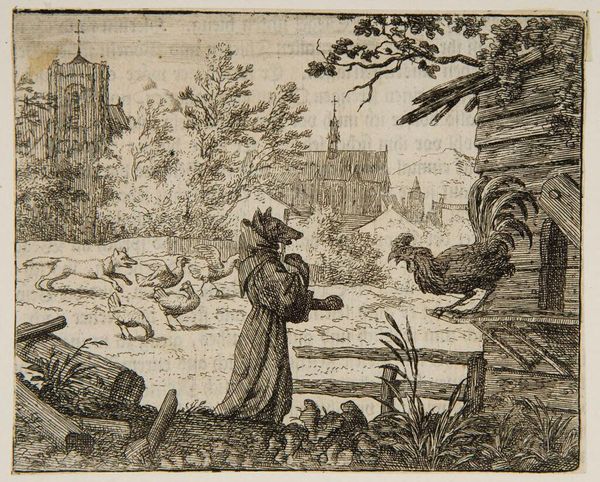
painting, sculpture, wood
#
portrait
#
narrative-art
#
baroque
#
painting
#
dog
#
landscape
#
classical-realism
#
river
#
figuration
#
text
#
sculpture
#
horse
#
men
#
wood
#
cityscape
#
genre-painting
#
history-painting
#
academic-art
#
decorative-art
Dimensions: L. 17 x W. 23 1/4 inches (43.2 x 59.1 cm)
Copyright: Public Domain
Curator: It strikes me immediately—this curious piece feels both whimsical and meticulously rendered. Editor: Indeed. This is "Riverview with figures and bridge" dating from 1685 to 1699, attributed to Leonardus Quesi. What you see is a black and white decorative panel – seemingly a painting on wood, offering us a glimpse into 17th century life. Curator: Painted wood! Fascinating. Look at the tooling; each figure, each architectural element, even the foliage, is delineated with such precision. It begs the question: Was this a bespoke piece, perhaps commissioned for a specific domestic setting? What social rituals might this have enabled or supported? Editor: Well, it's interesting you mention setting, since this panel plays with those boundaries. This scene could be seen as evoking a certain leisurely ideal—a staged portrayal reflecting the patron's refined sensibilities and aspirations during a period of expanding mercantile wealth, perhaps meant for public display. Note how prominently figures parade, almost theatrical. Curator: True! This isn’t just decoration; it's a statement about how materials can signify status. And, that dog – that little furry material witness – observing the process with an uncanny expression! Does the application of a "high art" aesthetic to this craft raise interesting social and artistic questions for that period? Editor: Certainly, that integration, or imposition of genre is an essential marker of taste. And perhaps more universally this composition and figuration allude to the human-scale impact on landscape. It feels strangely contemporary despite its Baroque origins, it mirrors today’s concerns on environmental change through a quaint presentation. Curator: I completely agree. What seemed decorative, almost trite initially is now a mirror. Thanks to considering material production and context, it certainly highlights social dynamics then and invites us to observe material choices today! Editor: And that tension of display and lived experience adds more layers into how one examines that wooden plane that so expertly captures this Riverview scene. It prompts questions on how such display affects a community’s imagination.
Comments
No comments
Be the first to comment and join the conversation on the ultimate creative platform.
